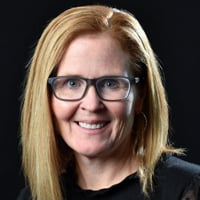As a financial planner, I am often asked by clients about which retirement savings tools are right for them. Many clients have questions about how Roth 401(k) plans in particular compare to other retirement saving strategies. To help clarify, I have put together the following list of frequently asked questions and answers to help you decide if Roth 401(k) contributions are right for you.
Guest Blogger: Kristen Smith

Recent Posts
The purpose of financial aid is to help bridge the gap between the cost of attending college and the amount that students and their parents can afford to pay. Unfortunately, many students forgo applying for financial aid because they assume they won’t qualify. Don’t let these common myths dissuade you from applying for financial assistance or lead you astray during the application process.
2020 has been a year to remember for so many reasons that it is easy to forget the significant legislation passed by Congress late last year that could potentially impact how you plan for retirement. The Setting Every Community Up for Retirement Enhancement (SECURE) Act is considered by many to be the most significant retirement planning legislation in a generation, and it has raised many questions.
Changes in the health care marketplace, rising medical costs, and the tax advantages that health care savings accounts (HSAs) offer make them an attractive planning tool for many individuals covered by high-deductible health plans (HDHPs). I have had some questions from clients recently regarding HSAs and what they entail, so I thought it would be helpful to outline some Frequently Asked Questions, below:
On December 20, 2019, the Setting Every Community Up for Retirement Enhancement (SECURE) Act was signed into law. The SECURE Act contains 29 provisions, encompassing many aspects of financial planning and retirement saving. Once treasury regulations are released, nuances in interpreting this new law will become clearer. Until then, individuals are left to interpret the law’s effects based on the language of the law itself. This article will address what the SECURE Act entails and who it affects, as well as provide suggestions on how to plan for the changes that have been instituted.
For individuals who are sitting on large gains in investment or business property, a 1031 exchange may be a viable option for deferring those gains. While these transactions tend to be complex, working with an expert who knows the rules surrounding the exchanges and the options available for replacement property can help you decide if this would be an appropriate step to take.











